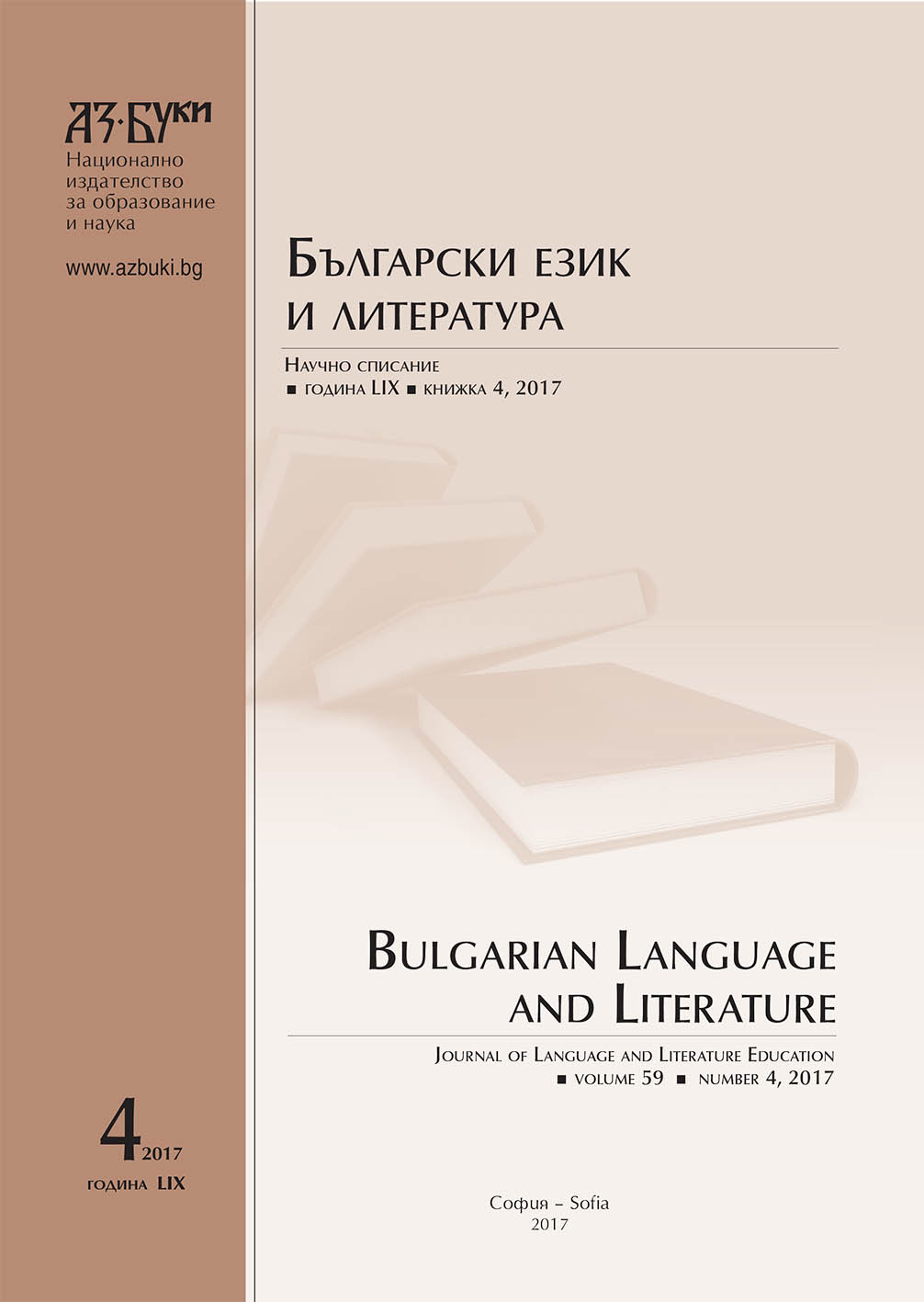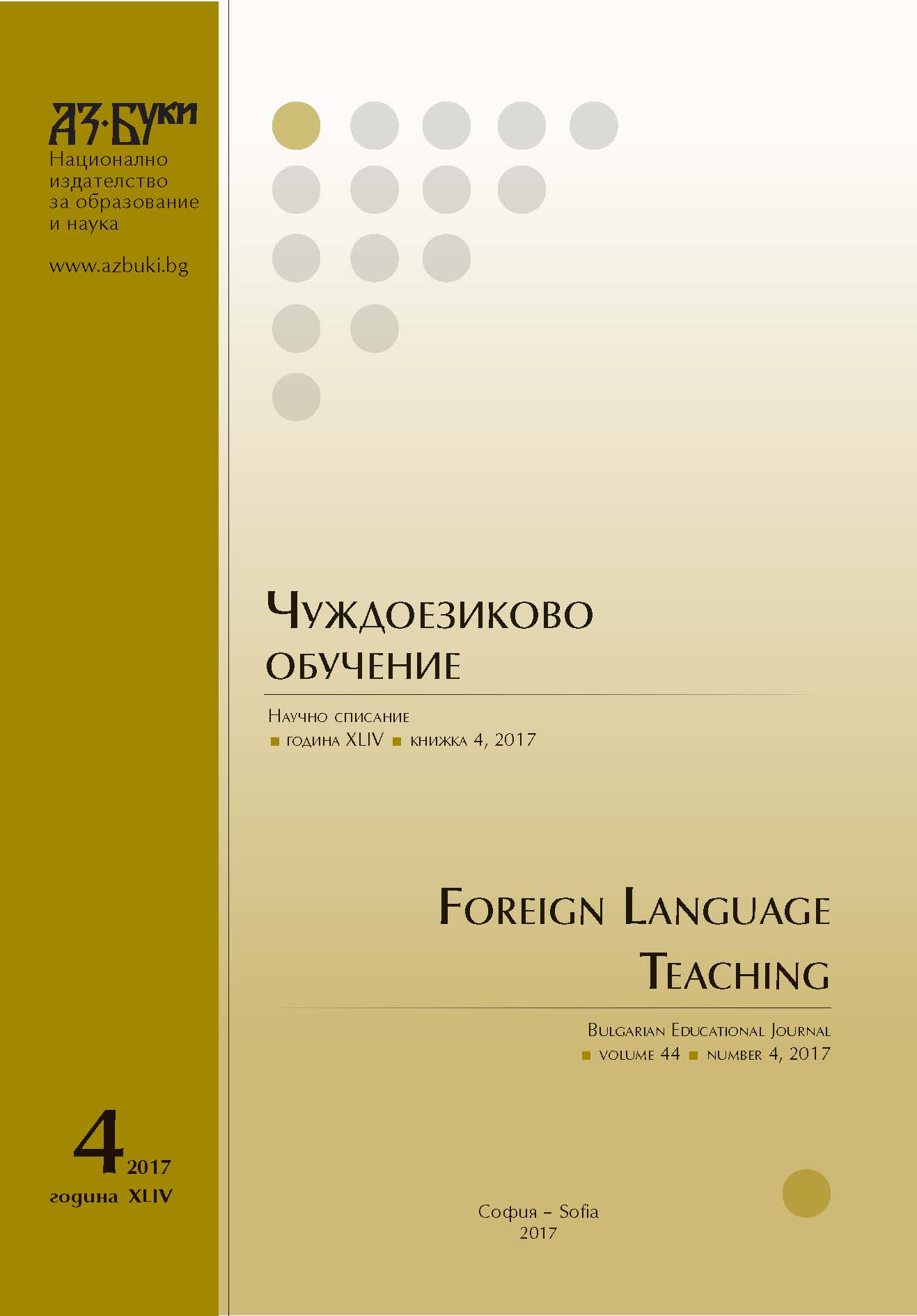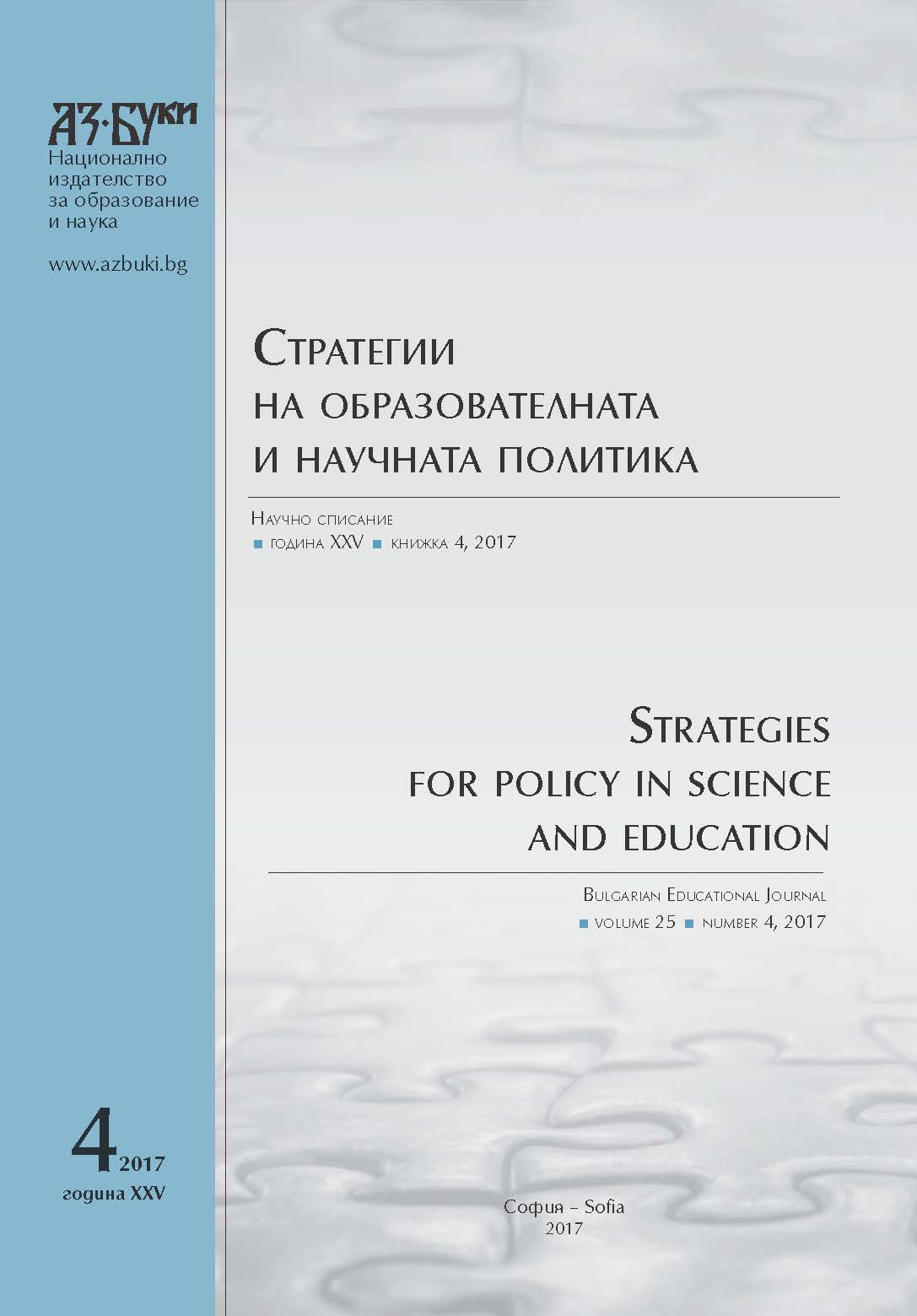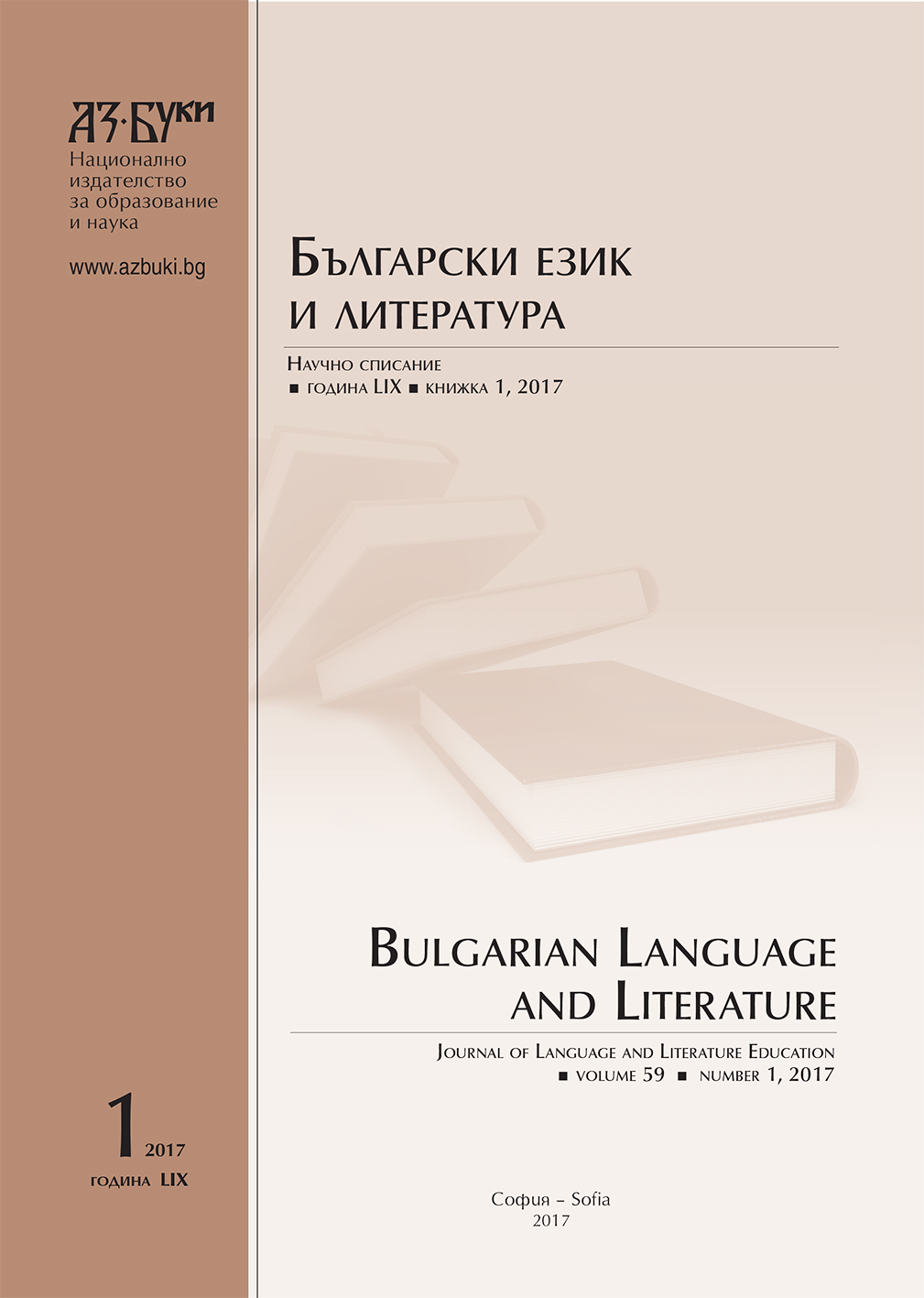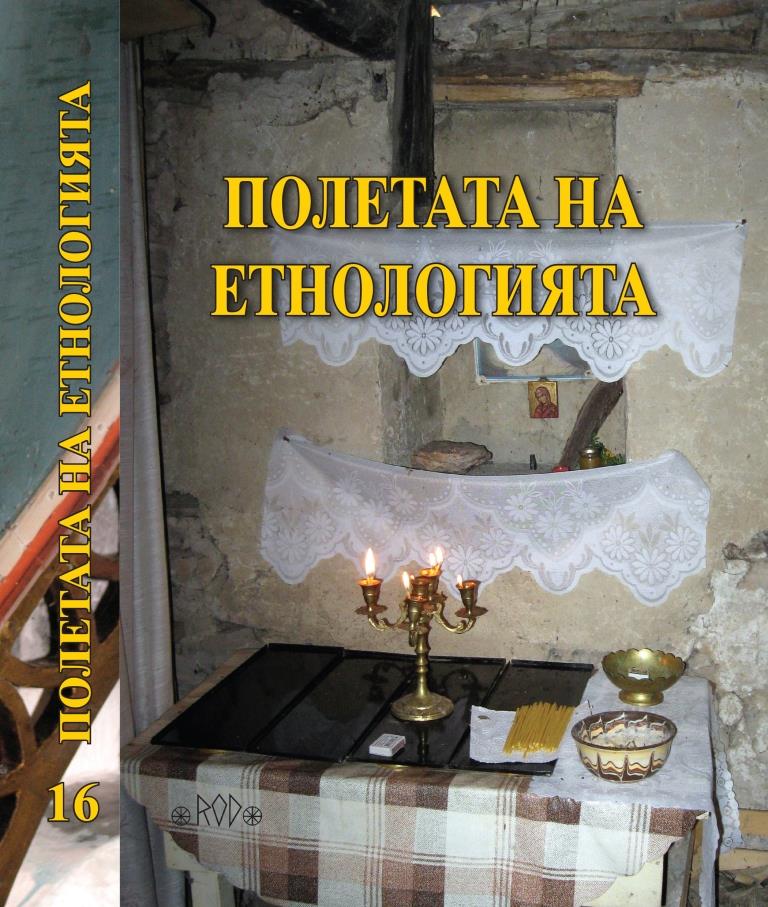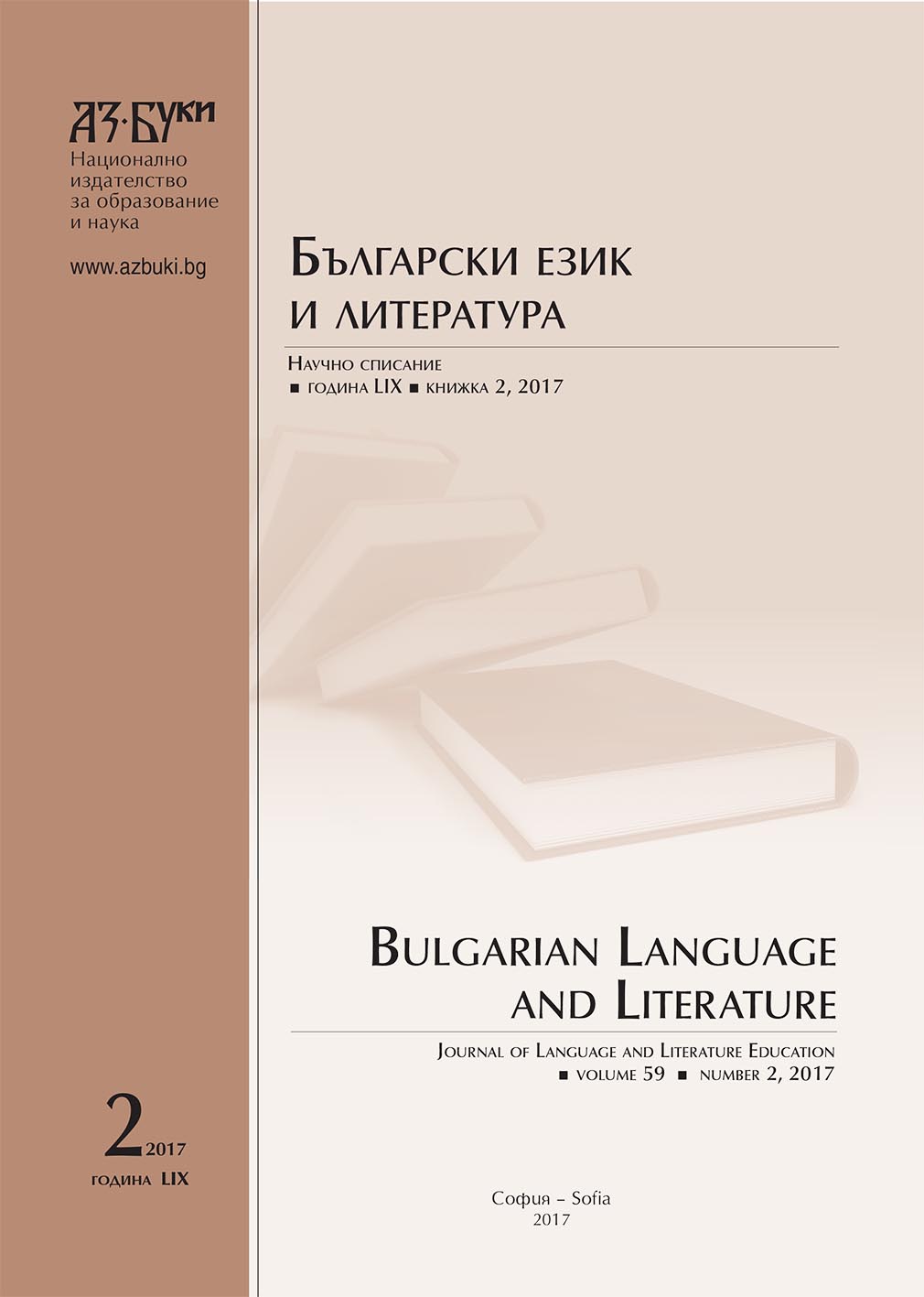
Създаване на съчинение по аналогия
The object of this paper are writings by analogy - creating stories about Hitar Petar (a hero of Bulgarian folk stories) in the 5th grade. The analogy as a global method of correspondences between implicit similarities gives ample opportunities for developing logical and associative thinking of the students. The methodical experiment was conducted in „Rayna Knyaginia“ Primary School – Plovdiv, during the academic year 2014 – 2015.
More...
